The combination of energy efficient technologies and green education saves energy costs and reduces CO2 emissions in housing sector.
Boosting Up Energy Efficiency in Belarus’ Small-Town Housing Sector
July 6, 2023
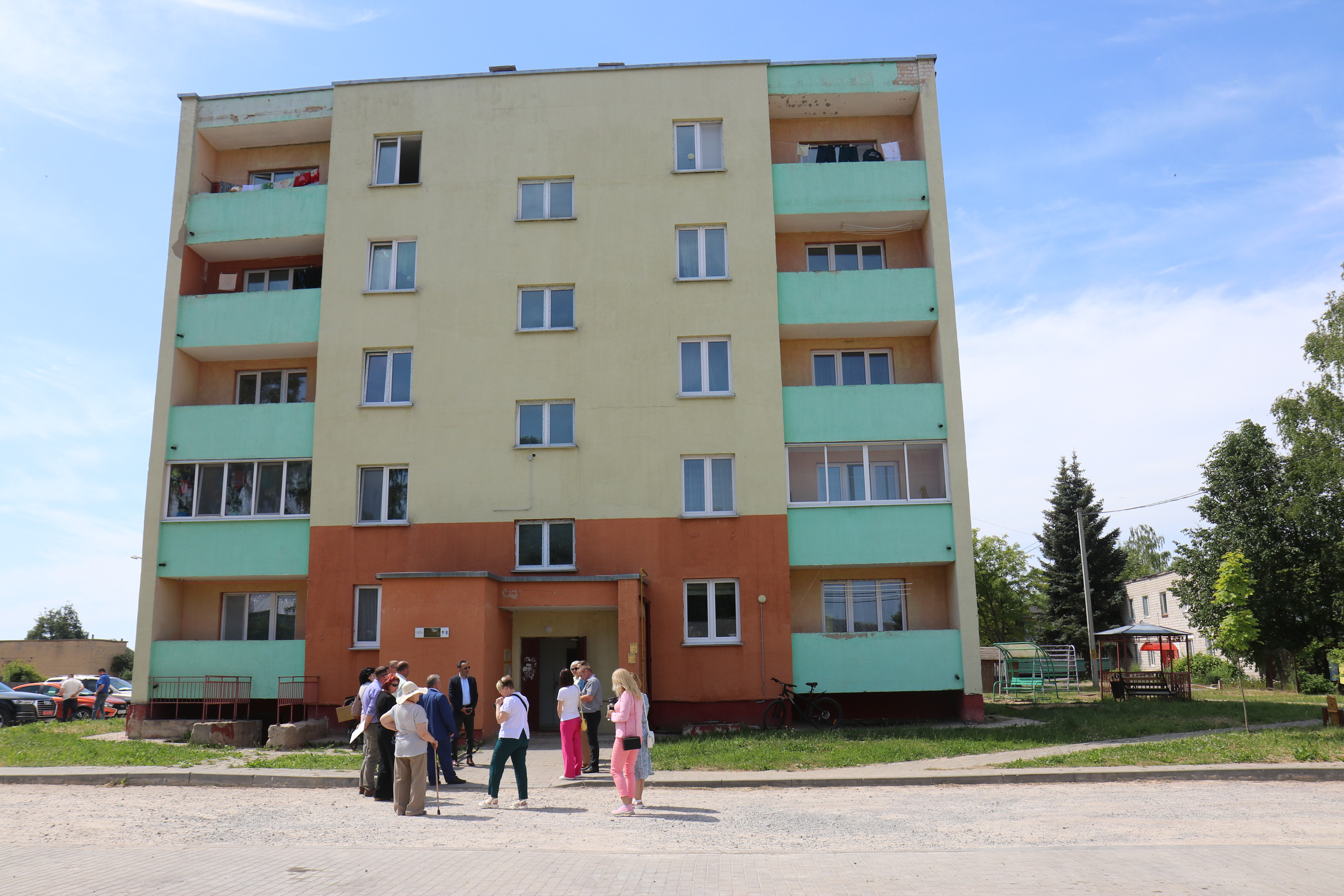
The small-town house with improved energy efficiency characteristics in Cherikov, Mogilev region.
Nearly 40% of the world's CO2 emissions come from the real estate sector. Of this, around 70% are produced from operation of buildings and the remaining 30% belongs to construction. Carbon emissions from building operations and construction sectors have recently reached record high levels. Thus, enhancing the energy efficiency of buildings is critical for decarbonization of the real estate sector.
Designing of behavioral strategies to promote energy efficiency among tenants in combination with the use of innovations and technological improvements can be a cost-effective way for the housing sector to reduce energy consumption and mitigate climate change.
In Belarus, heating and hot water supply in residential and public buildings consumes about 35% of all heat energy produced in the country, while the total amount of greenhouse gas emissions produced by the housing sector is more than 12% of all emissions. Belarus is pursuing a targeted and systemic policy to reduce heat energy consumption in the housing and communal sector through upgrades and renovations, such as high-performance insulation "warm" windows, "smart" ventilation systems, as well as green energy solutions like heat pumps and solar panels.
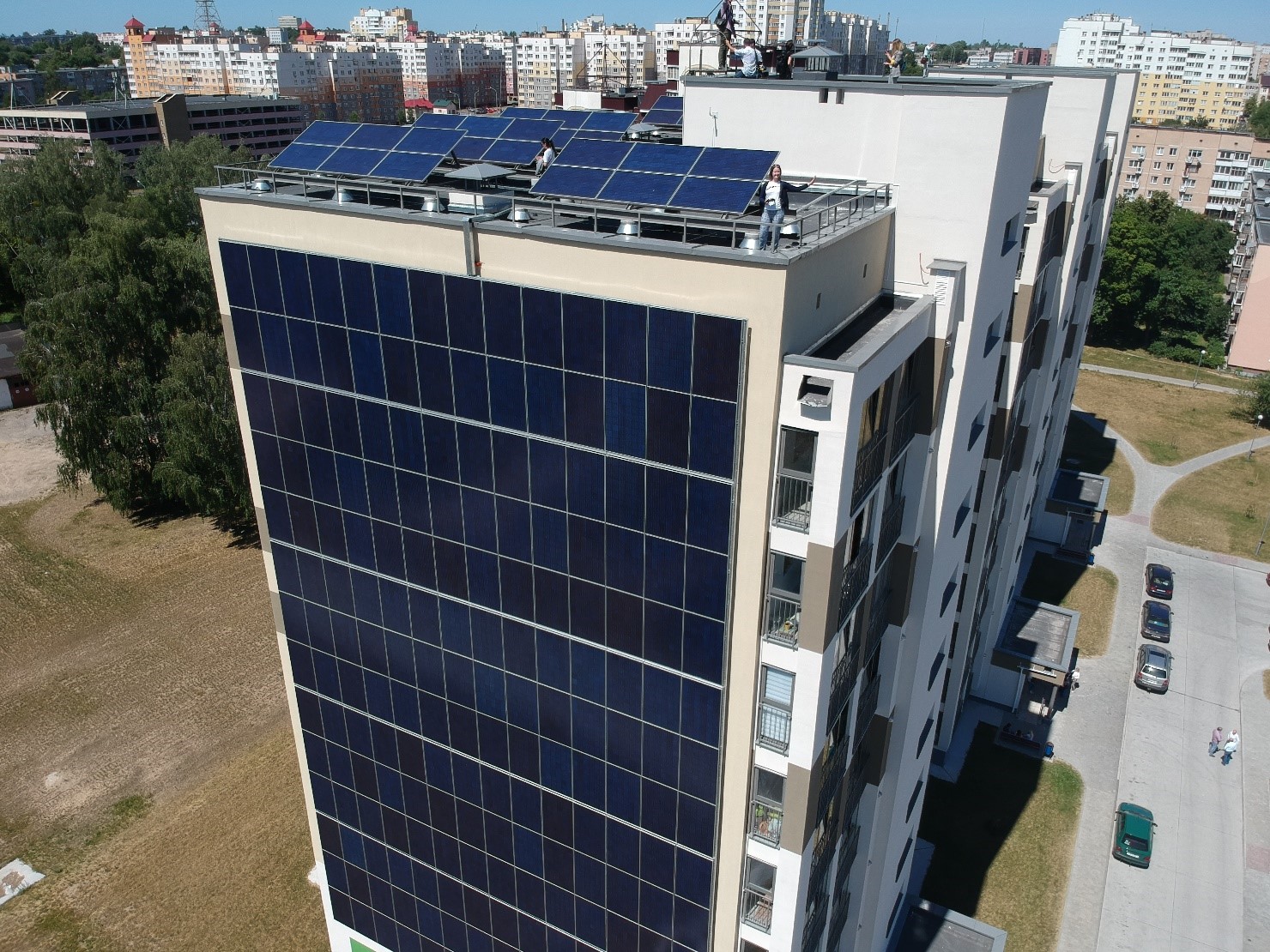
Second-generation energy-efficient house built with UNDP and the GEF support in Mogilev.
From 2012 to 2018 United Nations Development Programme (UNDP), and the Global Environment Facility (GEF) partnered with the Energy Efficiency Department of the State Committee for Standardization of the Republic of Belarus to pilot the construction of the country's first model apartment buildings equipped with energy efficient technologies in Mogilev, Grodno and Minsk.
Brining energy efficiency to the small-town housing sector.
Energy efficiency and energy saving technologies are now widely used in the capital and regional cities, however, in the Belarusian districts they are still quite rare. The lack of energy efficient practices in the districts puts a burden on local budgets and local people’s wallets. Because houses in small towns often rely on expensive heating systems that use coal, the cost of heating can account for up to 40% of utility bill.
Closing the energy-efficiency gap in the housing sector between cities and small towns requires partnerships, investment in green technology and environmental education.
The rate of application of energy efficient technologies in rural areas is increasing and a number of local initiatives can serve as models for districts that are at the very beginning of their journey towards energy efficiency.
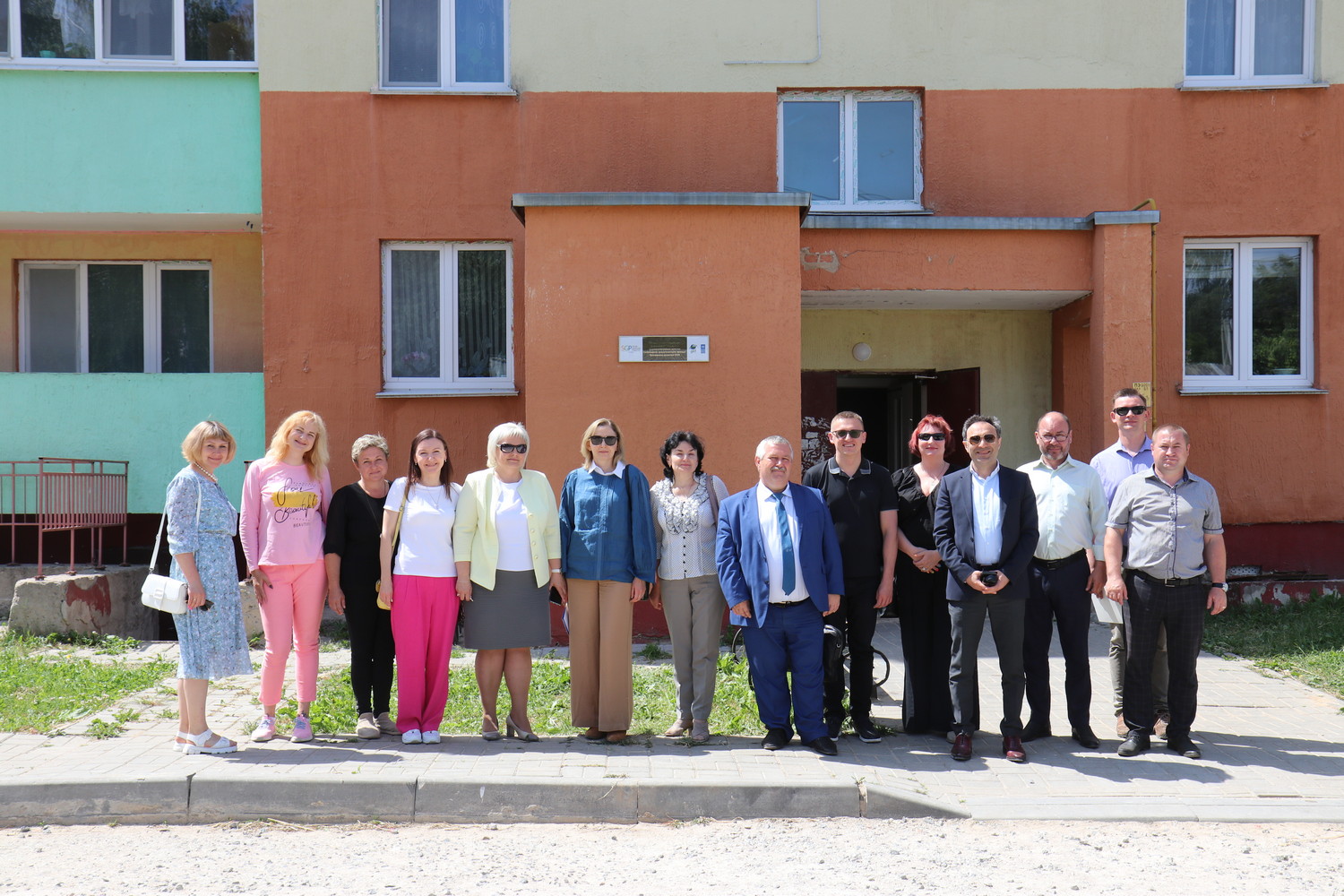
The management and the staff of UNDP, GEF/UNDP SGP, the Ministry of Natural Resources and Environmental Protection of Belarus, Cherikov District Executive Committee and local communal services discussed the results of the energy efficient house project in Cherikov.
Two energy-efficiency initiatives were implemented with the support from the UNDP/Small Grants Programme (SGP) in Cherikov district, Mogilev region.
In 2018, the GEF/UNDP SGP, the Center for Innovative Development joined efforts with the Cherikov Housing and Communal Service to implement a project aimed at piloting energy efficiency practices and technologies in the district.
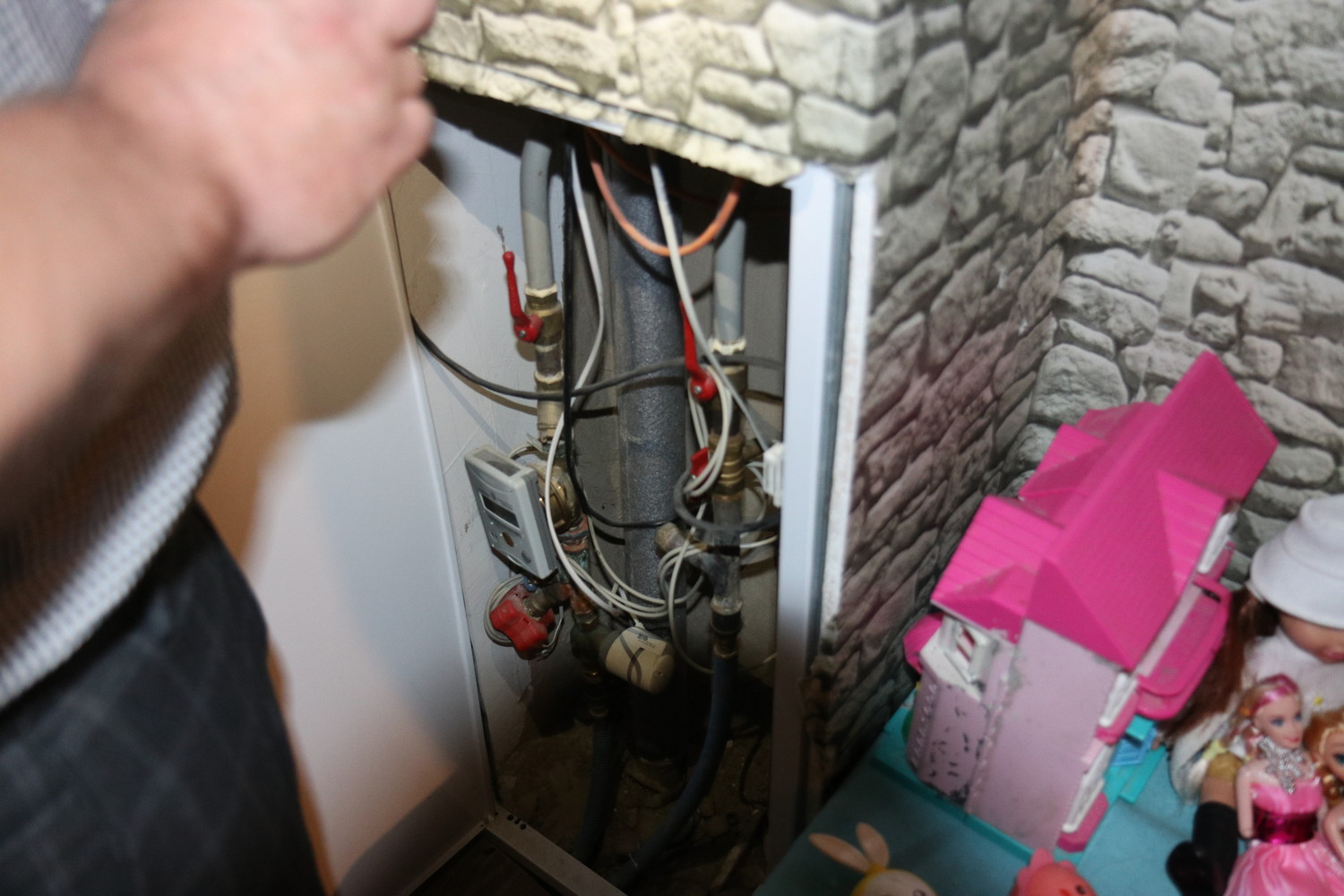
Smart heating control system in one of the apartments of the energy efficient house in Cherikov.
Smart technologies to help improve energy efficiency in houses.
The project helped to install an automated “smart” heating system in the 20-apartment residential house in Cherikov. The smart heating allows tenants to control their heat consumption and set a base temperature. A special sensor monitors the air temperature and if it goes up or down it can be adjusted manually by an electronic regulator. Further, the selected temperature mode will be maintained by a thermostat.
This technology also brings significant benefits to people’s health, especially vulnerable people such as older people or those with respiratory conditions.
In addition to temperature sensors, a thermostat and a regulator, the system is also equipped with a router connecting it to the Internet. This feature allows the tenants to control the heating system via a mobile app installed on their smartphones, so that the heating isn’t on when it isn’t needed. This is very comfortable in situations when the tenants are away.
The pilot proved to be successful. Heat energy consumption was reduced by 22.4% and heating cost savings reached 20%. In addition to benefiting people, energy efficiency in the housing sector helps to cut CO2 emissions and contributes to the country's Nationally Determined Contribution set under the Paris Agreement – to reduce CO2 emissions by 35% until 2030. The energy-efficient house in Cerikov helped to reduce CO2 emissions by 0, 1735 tons per year. replication good model
Transforming people’s behavior towards sustainable energy use and energy efficiency.
In addition to energy saving technologies, the development of energy efficient practices in the housing sector requires active community outreach and education.
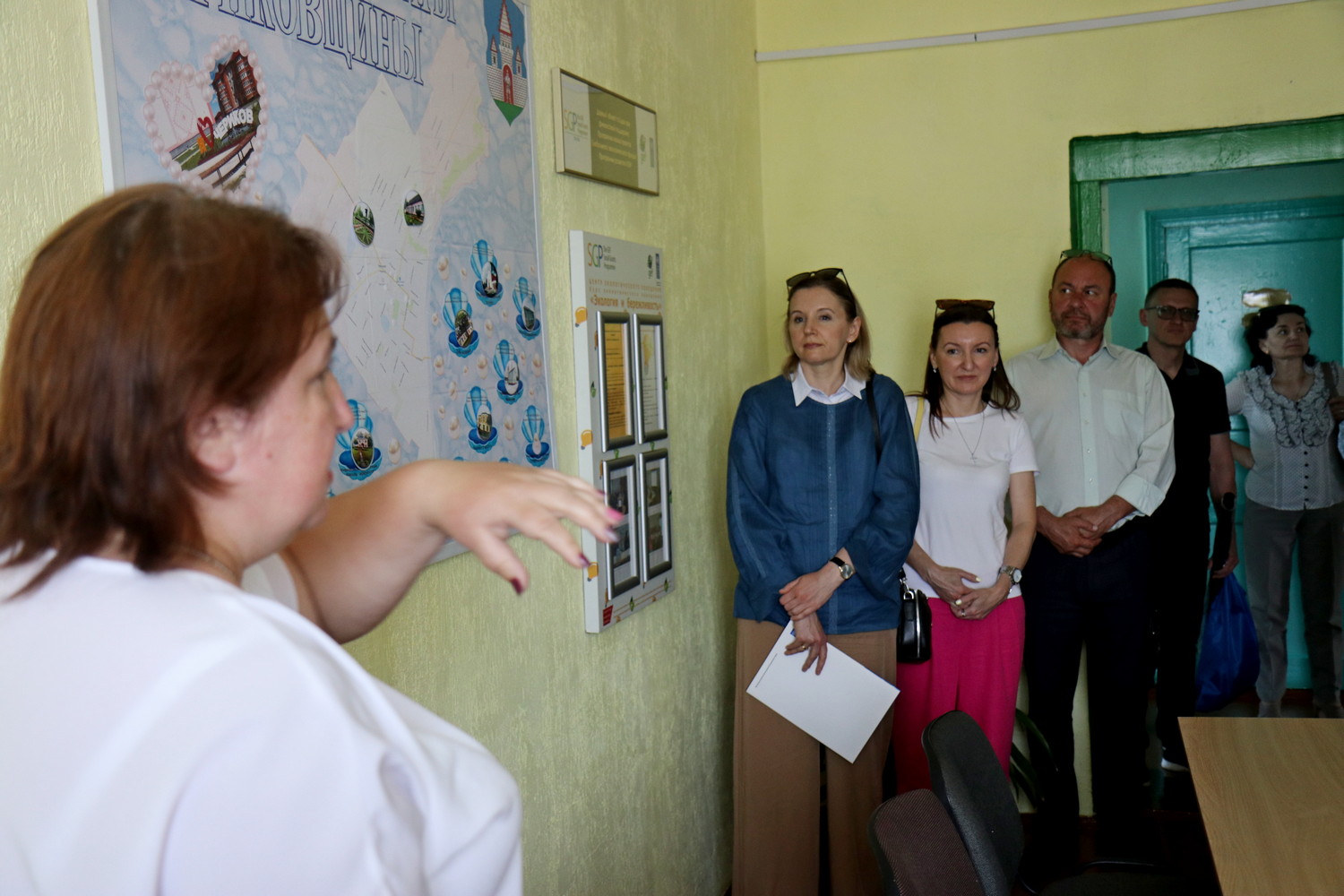
UNDP Resident Representative, Alexandra Solovieva visits the Environmental Behavior Center in Cherikov district.
The UNDP SGP helped to establish the Center for Environmental Behavior in the Cherikov Center for Children's and Youth Tourism, Local History and Excursions.
Three educational courses on green and energy-efficient behavior were developed by local teachers who were trained in energy efficiency. Over the three years the Center has educated about 600 schoolchildren.
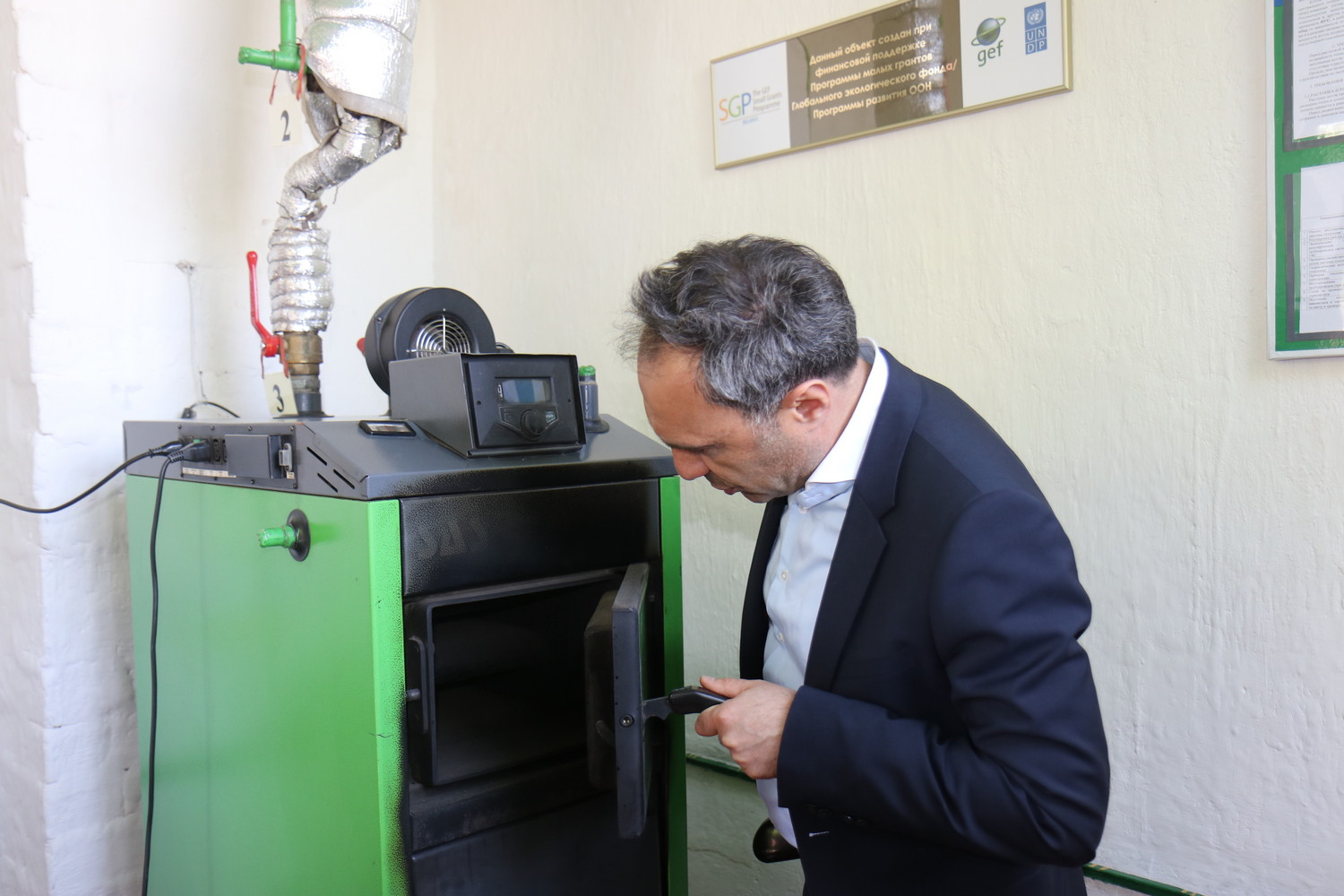
A new energy efficient heating system allows the Center to reduce solid fuel consumption by up to 12%.
Apart from advancing children’s knowledge on energy efficiency and green behavior towards sustainable use of energy, the project helped to improve their learning environment by installing a “smart house” heating system and a new energy saving boiler.
Local community engagement on energy efficiency knowledge and behavior gives way to broader application of green technologies and innovations at the regional level.
"Reducing heat and electricity costs helps the people to enhance their well-being along with providing substantial benefits for the environment and the energy sector," said Alexandra Solovieva, UNDP Resident Representative in Belarus. “The UNDP SGP project demonstrates the importance of supporting districts and local communities in piloting innovative approaches towards improving energy efficiency of residential buildings”.
Addressing the energy-efficiency in small towns and rural areas requires a concerted effort by a whole range of local and national partners, including local administration, communal services, businesses, and educational institutions. The availability of financial support, the development and scaling up of best practices are also important. The development of new types of financing with banks and private sector will amplify these efforts further by stimulating local initiative and partnerships to accelerate the movement of rural areas along the energy efficient trajectory of local development.

 Locations
Locations



